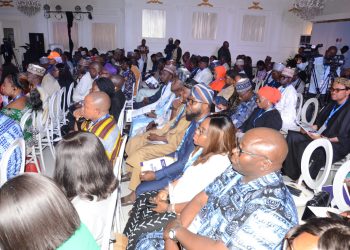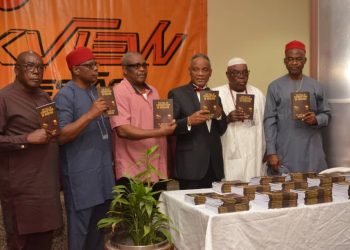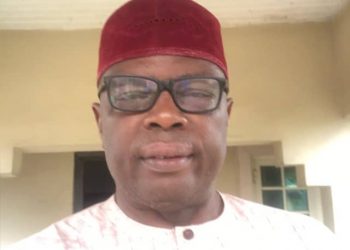SONIA EKWEREMADU MUST NOT DIE!
By Monima Daminabo
Call this piece an alert, or an appeal, or whatever name. By whatever name it goes, the message remains the same: a touching call to stir up the humanity that lies in every soul who comes across Sonia Ekweremadu in her predicament. Sonia Ekweremadu must not die! At least not from whatever delay that is associated with the on-going trial of both of her parents in a British court, for alleged attempt to buy kidney(s) for her survival. Her story is that of a helpless innocent girl staring death in the face, as she undergoes the costly and painful process of kidney dialysis in a British hospital, while efforts by her parents to secure a kidney for transplanting into her, has ended up in multiple ‘wahala’.
In the first place the attempt by the parents failed. Secondly, the parents had been detained in the UK since June last year, while their trial has just started in a matter that has all the trappings of an international legal high drama. Thirdly, and perhaps most disturbing, is the alarm raised by former Corps Marshal of the Federal Road Safety Corps (FRSC), and later Minister of Aviation, Osita Chidoka, that efforts by a “deluge” of willing donors to donate kidney to her are being rebuffed by the British authorities. Meanwhile the young girl remains languishing on her hospital bed, unsure of what her future holds.
The story of Sonia Ekweremadu is one that had gone viral for months on virtually all traditional and social media platforms, and may no more be news to many. Following her diagnosis which indicated that she required a kidney transplant, her parents – Ike Ekweremadu and his wife Beatrice, reportedly arranged for a donor to come from Nigeria to donate the organ to the sick child. Incidentally, the twists and turns associated with the legalese in the matter are now the concern of a British court to unravel.
Even at that, several angles to the drama had seeped into the public domain and now constitute the cud for the various theatres of public discourse to ruminate on. In the first place is that a young Nigerian male (name withheld), was brought from Nigeria to the UK for the purpose of donating his kidney to Sonia. After some routine tests in a British hospital, to verify the suitability of his kidney for her it was found unsuitable. This situation rendered him to be what Nigerians will call a ‘bad market’.
The twist in the drama came when the failed donor, claimed under investigation by the hospital and the British Police that he was brought to the UK under false pretences by the Ekweremadus. According to him he was offered a job opportunity in the UK, only to arrive and discovered that it was to harvest his kidney that he was assisted to come to the UK. This testimony of his led to the arrest of the Ekweremadus in June last year and subsequent incarceration, pending trial for a criminal offence. Meanwhile in all of this drama, Sonia’s medical challenge seems to have paled on to the back burner.
This is a scenario that no parent will like to be found in, if such can be helped. Hardly can any parent worth his or her salt remain complacent and watch a child writhe in pain or discomfort without lifting a finger to provide relief. The sin of the Ekweremadus is therefore that in procuring relief for their sick daughter Sonia, they breached the laws of the UK, as while organ donation in that country is allowed, the involvement of financial consideration that would seem like a purchase transaction in any manner, remains unlawful.
From a layman’s position, this author is not inclined to dabble into the legality of the Ekweremadu matter or commit subjudice as far as British jurisprudence in whose terrain it now rests is concerned. But as a citizen of the world and a parent who in 2012 experienced perhaps the bitter end of miscarriage of British medical and legal assistance to accident victims by some ill-disposed officials of that country, Sonia’s condition provides enough cause for concern. While the details of that painful experience by this author and his family, may hereby be reserved for another day, the reminiscence it offers, justifies the concern that Sonia‘s case offers more than meets the eyes.
Hence, suffice it therefore to state here that the author’s bitter encounter provides enough impetus for concern over the fate of Sonia, especially in the light of the recent alert by Osita Chidoka that she is being denied the benefit of a kidney transplant even when ‘’a deluge” of willing donors are around and willing to donate such to her, free of charge.
This is where a clear distinction needs to be drawn between the circumstances of Sonia as a patient who requires urgent medical treatment and those of her parents. At this stage the argument is not to dissuade the British establishment from taking their pound of flesh from Ike and Beatrice Ekweremadu. But such need to be done without spilling the blood of Sonia. Rather in the circumstances, her health condition even supersedes whatever the British would gain by hauling the Ekweremadus through the full course of the prosecutions for all parties with capacity to contribute towards resolving the situation.
For the British government, Sonia’s case is one with which it can still show the world that humanity still runs through its. Allowing Sonia undergo the transplant will not vitiate any aspect of the charge against her parents. For the Nigerian government, it has a constitutional responsibility to intervene in the matter of Ekweremadus, and establish an interface with the British government, especially given the situation of Sonia.
Yes, Sonia must not die, and the onus falls on her dear country Nigeria, to do the needful




















